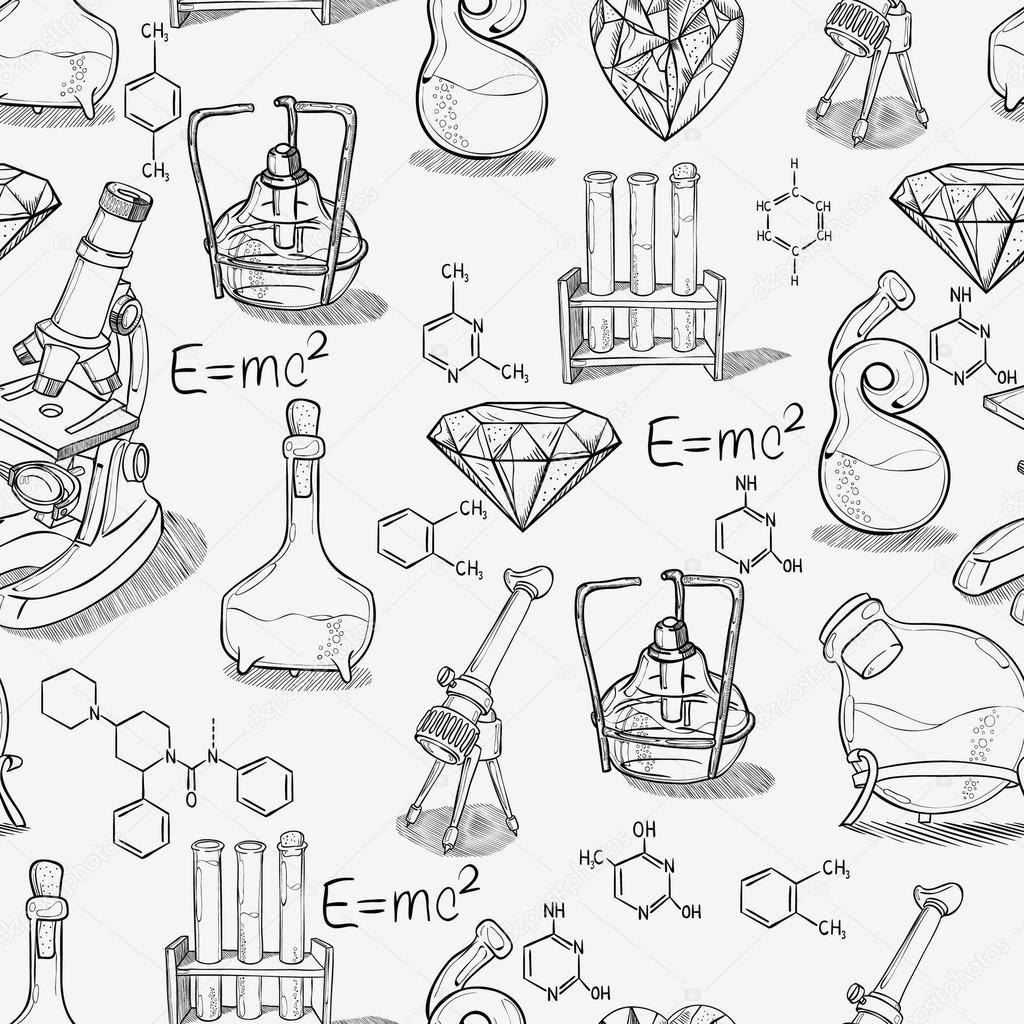- Преподаватель: Варвара Михайловна Бяхова
- Преподаватель: Олеся Анатольевна Петрухина
- Преподаватель: Наталья Юрьевна Родионова
- Преподаватель: Наталья Игоревна Трошина
- Преподаватель: Варвара Михайловна Бяхова
- Преподаватель: Елена Анатольевна Епифанова
- Преподаватель: Дарья Сергеевна Кузьменко
- Преподаватель: Олеся Анатольевна Петрухина

The course consists of lectures and guided exercises. An
introduction into interfacial phenomena (surface tension, wetting, adsorption
and the electrical double layer) and intermolecular (van der Waals) forces of
significance for colloidal stability is given. Fundamental principles for
experimental methods for measuring the phenomena are presented.
Examples of the practical significance of physical
chemistry and colloidal systems in everyday life and industrial processes are
provided, and a simple computer program is created.
The guided exercises consists of computational and
theoretical exercises related to principles and theories presented in the
lectures.
- Преподаватель: Екатерина Борисовна Маркова
- Преподаватель: Morteza Yousefi
- Преподаватель: Александр Алексеевич Никишов
- Преподаватель: Надежда Павловна Сачивкина
- Преподаватель: Мозгова Анастасия Юрьевна 1042180227
- Преподаватель: Мозгова Анастасия Юрьевна 1042200102
- Преподаватель: Наталья Юрьевна Родионова
The main purpose is the formation of professional knowledge in the field of organization of agricultural production. To achieve this goal, the following tasks are solved:
a) Сconsider the theoretical foundations of Economics and organization of agricultural production.
b) To study the main methods of assessing the efficiency of using enterprise resources
c) Study the main methods of calculating the cost of production and forming prices for agricultural products;
d) Consider the main principles and forms of specialization, cooperation and integration.
e) Consider the Economics of grain, potato and vegetable production, forage crops, and livestock products
- Преподаватель: Morteza Yousefi
- Преподаватель: Кирилл Михайлович Мефед
- Преподаватель: Газин Алексей Алексеевич 1032131772
- Преподаватель: Зенченкова Анна Петровна 1042190092
- Преподаватель: Алексей Алексеевич Газин
The main goal of the course is to introduce students, studying in the specialty "Veterinary Medicine" with the basis of zootechnical science; to give them theoretical and practical knowledges on questions of farm animals’ breeding and technologies for obtaining products from various types of farm animals, and thereby to prepare them for subsequent special courses.
- Преподаватель: Morteza Yousefi
Farm animals’ hygiene is the basis of veterinary prophylaxis, the science of protecting and enhancing animal health, increasing natural resistance, and rational methods of keeping, rearing and caring, in which animals exhibit high resistance to disease and produce high-quality and quantity production.
- Преподаватель: Morteza Yousefi
- Преподаватель: Карина Юрьевна Ерофеева
- Преподаватель: Раджеш Рохидас Залте
- Преподаватель: Анна Владимировна Листратова
- Преподаватель: Зенченкова Анна Петровна 1042190092

- Преподаватель: Парфэ Кезимана
- Преподаватель: Елена Валерьевна Романова
- Преподаватель: Варвара Михайловна Бяхова
- Преподаватель: Русул Яхья Джасим Яхья Ясим Алабада
- Преподаватель: Елена Юрьевна Невская
- Преподаватель: Елена Ивановна Полякова
- Преподаватель: Анна Федоровна Степнова
- Преподаватель: Варвара Михайловна Бяхова
- Преподаватель: Олеся Анатольевна Петрухина
- Преподаватель: Олеся Анатольевна Петрухина
- Преподаватель: Олеся Анатольевна Петрухина
- Преподаватель: Олеся Анатольевна Петрухина
- Преподаватель: Олеся Анатольевна Петрухина
The main goal of the course is to introduce students, studying in the specialty "Veterinary Medicine" with the basis of Parasitology and invasive diseases; to give them theoretical and practical knowledges on questions of Internal non-communicable diseases animals’ .
- Преподаватель: Арфеня Семеновна Карамян
The main goal of the course is to introduce students, studying in the specialty "Veterinary Medicine" with the basis ofInternal non-communicable diseases ; to give them theoretical and practical knowledges on questions of Internal non-communicable diseases animals’ .
- Преподаватель: Арфеня Семеновна Карамян
The main goal of the course is to introduce students, studying in the specialty "Veterinary Medicine" with the basis ofInternal non-communicable diseases ; to give them theoretical and practical knowledges on questions of Internal non-communicable diseases animals’ .
- Преподаватель: Арфеня Семеновна Карамян
The purpose of studying the clinical diagnosis of animals is the formation of basic and professional knowledge of the diagnosis of changes in physiological processes and functions in mammals and birds, their qualitative originality in the body of productive livestock, domestic, laboratory and exotic animals needed veterinarian for the scientific substantiation of activities related with the diagnosis and subsequent treatment of diseases, with the creation of optimal conditions, feeding and maintenance of animals, prevention of diseases, health assessment, the nature and extent of violations of the organs and the body, identify ways of effects on the body in order to correct enforcement activities.
- Преподаватель: Арфеня Семеновна Карамян
The purpose of teaching the discipline is to give students, future scientists veterinarians broad scientific basis of animal nutrition, the organization of feeding different types of animals for genetically determined productivity with high quality, health and reproduction.
- Преподаватель: Арфеня Семеновна Карамян
Hygiene of farm animals the basis of veterinary prevention, the science of protecting and improving the health of animals, improving the natural resistance of the rational methods of keeping, breeding and care under which the animals exhibit a high resistance to diseases and give high quality for maximum efficiency.
Zoohygiene studies the relationship of animals with the environment, and develops future professionals of medical thinking.
Zoohygiene explores and develops sanitary requirements and veterinary-sanitary measures in the prevention of animal diseases. Hygiene is related to the protection of the environment. It is the basis of non-specific prevention, studies environmental factors affecting the health, natural resistance and productivity of animals
- Преподаватель: Арфеня Семеновна Карамян
The main purpose of the course - to introduce students studying in the specialty "veterinary medicine" in the range of issues of animal science and practice. To give them theoretical and practical knowledge on questions of cultivation of farm animals (to bases of breeding work), technologies of production from different types of farm animals and to prepare thereby for the subsequent mastering by them of special courses
- Преподаватель: Арфеня Семеновна Карамян
Biochemistry: introduction. Structure and Function of Biomolecules. Proteins: structure, properties, functions. Complex proteins, Nucleic acids. Enzymes. Molecular mechanisms of regulation. Lipids: structure, properties, functions. Biological membranes. Energy metabolism. Carbohydrate metabolism. Lipid metabolism. Protein metabolism. Amino acid metabolism. Metabolism of conjugated proteins. Biochemistry of organs and tissues.
- Преподаватель: Екатерина Владиславовна Неборак
Biochemistry:
introduction. Structure and Function
of Biomolecules. Proteins:
structure, properties, functions.
Complex proteins, Nucleic acids. Enzymes. Molecular
mechanisms of regulation. Lipids: structure, properties, functions. Biological membranes. Energy
metabolism. Carbohydrate metabolism. Lipid
metabolism. Protein
metabolism. Amino acid metabolism. Metabolism
of conjugated proteins. Biochemistry of organs and tissues.
- Преподаватель: Екатерина Владиславовна Неборак
The goals and objectives of the course: the Aim of the teaching of Economics and management is the formation of students ' professional knowledge about phenomena and processes of economic life of society, methods and tools to study these phenomena, methods and means of solving economic problems. This discipline aims to shape economic thinking and behavior skills of economic actors in a market economy.
Language: english
the total complexity of the discipline: 72 hours
- Преподаватель: Андрей Николаевич Жаров
The purpose of discipline:
consolidate knowledge and skills acquired in the study course of professional disciplines of the base portion, to instill the ability of differential diagnosis in a veterinary clinic, develop logical thinking ability in assisting the individual patient.
The role of the discipline as an outlet and profiling in the formation of clinical medical thinking, is the connection between a knowledge of all clinical disciplines and use this knowledge in everyday medical practice.
- Преподаватель: Арфеня Семеновна Карамян
The purpose of discipline:
consolidate knowledge and skills acquired in the study course of professional disciplines of the base portion, to instill the ability of differential diagnosis in a veterinary clinic, develop logical thinking ability in assisting the individual patient.
The role of the discipline as an outlet and profiling in the formation of clinical medical thinking, is the connection between a knowledge of all clinical disciplines and use this knowledge in everyday medical practice.
- Преподаватель: Арфеня Семеновна Карамян
The major goal of the
Histology, Cytology and Embryology’ course is the study of living organisms’
normal structure at various levels of their organization: molecular,
subcellular, cellular, tissue, and organ’s systems levels, and basic studies of
tissues, organs and human organism development.
- Преподаватель: Арфеня Семеновна Карамян
- Преподаватель: Екатерина Олеговна Рысцова
The purpose of the study
of the subject is to develop basic and professional knowledge about the history
of the formation of specialty, the study of the physiological processes and
functions in mammals and birds, their anatomy, qualitative originality in the
body of productive livestock, domestic, laboratory and exotic animals needed
veterinarian for scientific study activities related to the creation of optimal
conditions, feeding and maintenance of animals, prevention of diseases,
assessment of health, the nature and extent of violations of the organs and the
body, identify ways of effects on the body in order to correct enforcement
activities
- Преподаватель: Арфеня Семеновна Карамян
Feature of the program for discipline "Biology with fundamentals of ecology" consists in fundamental character of a statement of the subject having the purposes – studying of structurally functional features, manifolding, regularities of development and relationship with a surrounding medium of basic groups of animals in comparative and anatomic, comparative and functional, phylogenetic and evolutionary aspects, taking into account their practical value for the veterinarian.
- Преподаватель: Арфеня Семеновна Карамян
- Преподаватель: Надежда Павловна Сачивкина

